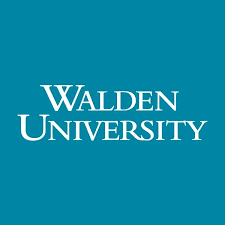
Abstract
This Special Issue of Higher Learning Research Communications is dedicated to selected papers from the 4th International Conference on Teaching and Learning (ICTL), held in Bangkok during November 13-15, 2013. The papers reflect the exciting changes occurring in ASEAN countries, especially in Higher Education. As the 21st century brings about new social changes and economic challenges, many Higher Education institutions seek to prepare students to face a constantly changing and globalized world. In that regard, the papers selected reflect how some Higher Education institutions are preparing to achieve this goal: internationalizing their curricula and incorporating technology into the classrooms.The first three papers deal with the concept of internationalization in Higher Education. Internationalization can be seen from two different perspectives: first, from foreign students crossing borders in order to look for educational and professional opportunities and, second, from local students seeking to acquire the necessary skills to succeed in a globalized world. With this in mind, Jeannin presents in her paper research conducted in order to determine how students perceive diversity in an international university in Thailand. Understanding how different students perceive diversity in multicultural and multilingual Higher Education settings can be a useful tool when trying to achieve internationalization. Billingham, Gragg, and Bentley, as well as Ling, offer specific cases of how academic institutions can achieve internationalization. Ling focuses on an important area in terms of globalization and internationalization: language acquisition in the postgraduate context. The importance of second language acquisition is evident in a globalized world, but research on language acquisition for professionals seeking postgraduate studies is limited. In this context, Ling’s study starts to fill a void in postgraduate Higher Education research by assessing the adoption of bilingual teaching methodology in a postgraduate program.Probably, one of the most powerful tools available today for internationalization and participation in a global economy is technology. Billingham, Gragg, and Bentley focus their paper on the use of technology in order to achieve internationalization and expose students and faculty to a global experience. However, Stetz and Bauman also remind readers in their paper that, just because the technology exists, it doesn’t mean it would be useful in attaining educational goals. For instance, popular tools such as video and audio lectures can actually take away from the educational experience if not prepared carefully and taking into account the increasing number of students with disabilities moving towards non-traditional learning formats, such as online classes. The goal is not to use technology for the sake of it, but to look for ways to improve the learning process.Hartfield, and Beltran-Cruz and Cruz, present specific examples on how technology can precisely improve and add value to the learning process. Some subjects cannot have an entire online component because students need hands-on experience. For such cases, Hartfield describes how the solution can be blended education, adding an online component to a face-to-face course that requires practical knowledge. By the same token, Beltran-Cruz and Cruz explain how adding a social media component to an otherwise traditional course enhances student learning. In this case, the authors report students feel more engaged and have a better educational experience.The impact technology is having on Higher Education, both in terms of internationalization and learning outcomes, is manifest. As Al-Masum and Chowdhury suggest in their paper, access to technology in Higher Education can even help developing nations reach a larger segment of the population in order to prepare and educate its citizens to face the global challenges of the 21st century. This is why it is so important to continue encouraging research in this area and celebrate international conferences, such as ICTL, where faculty and researchers from an internationalized and digital community can connect, share experiences, and advance mutual goals.
Recommended Citation
Editors, T.
(2013).
Editorial.
Higher Learning Research Communications, 3 (4).
Retrieved from https://scholarworks.waldenu.edu/hlrc/vol3/iss4/8






